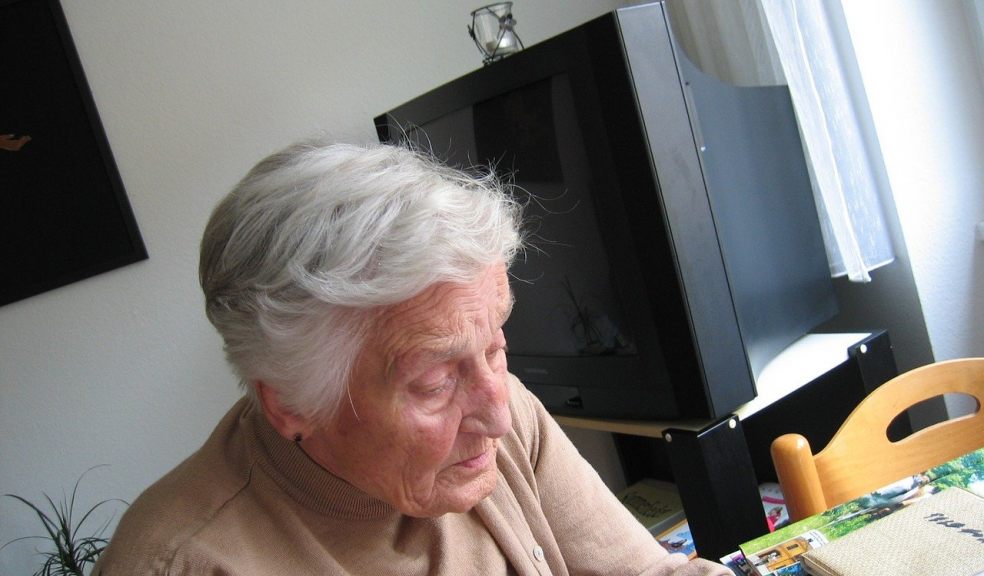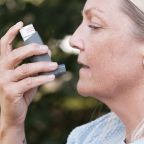
Pandemic claims the lives of more than 2,000 people with dementia in the South West
A staggering 2,000 people with dementia are estimated to have died from coronavirus in South West England since the pandemic hit the UK in full force in March 2020.1
They are among more than 34,000 with the condition to have died in England and Wales from Covid-19, making people with dementia the worst hit by coronavirus.
In addition, new calculations from the Office for National Statistics (ONS) reveal that deaths of care home residents, where at least 70% of people have dementia, are 30% higher than previously thought.
There have been almost 12,000 (11,624) deaths since January 2021, which includes care home residents who have died in hospitals or elsewhere.
A coalition of dementia organisations including Alzheimer’s Society, Dementia UK, John’s Campaign and TIDE (together in dementia everyday), have come together to say never again will those affected face such hardship and loss.
Alzheimer’s Society’s investigation has shown the pandemic’s toll goes even further than deaths from the virus.
In a survey of 1,001 people who care for a family member, partner or someone close to them with dementia3, an overwhelming 92%4 said the pandemic had accelerated their loved one’s dementia symptoms; 28% of family carers said they’d seen an ‘unmanageable decline’ in their health5, while Alzheimer’s Society’s support services have been used over 3.6 million times since the pandemic began.
Alzheimer’s Society’s Dementia Connect support line has been flooded with calls from relatives revealing how quickly their loved ones are going downhill, losing their abilities to talk or feed themselves.
Nearly a third (32%) of those who lost a loved one during the pandemic thought that isolation/lack of social contact was a significant factor in that loss.6
People with dementia in care homes have been cut off from their loved ones for almost a year, contributing to a massive deterioration in their health.
A third (31%) reported a more rapid increase in loved ones’ difficulty speaking and holding a conversation, and quarter (25%) in eating by themselves.7
Only 13% of people surveyed have been able to go inside their loved one’s care home since the pandemic began. Almost a quarter (24%) haven’t been able to see their loved one at all for over six months.8
Alzheimer’s Society is calling for meaningful – close contact, indoor – visits to be the default position without delay from 8 March.
There are an estimated 850,000 people living with dementia in the UK, including more than 92,000 in South West England.
Dementia organisations, including this coalition, joined forces as One Dementia Voice in July 2020 to call for designated family carers to be given key worker status to enable care home visits to loved ones.
Family carers are integral to the care system, and to the people for whom they care - it’s they who know how to get their loved ones to eat, drink, take medicine - and are often the first to know when something is wrong.
While the Government recently announced that indoor visits will restart for one family member from 8 March, the coalition emphasises that this must be the default position and that blanket bans on visitors (where there is no coronavirus outbreak) are unacceptable.
The pandemic has not just hit those in care homes. With 470,000 people with dementia living in the community, many are reliant on unpaid family carers for support. 42% of these carers say lockdown has caused a rapid increase in feelings of depression in their loved one, while over half (54%) say they’ve seen a rapid loss of memory.9 Carers themselves have been hugely affected – seven out of ten (73%) say that the last year has negatively impacted their mental and physical health with anxiety (42%) and exhaustion (34%) the most cited symptoms.10 Over half (54%) saying that the pandemic has left them feeling less able to care for their loved one.11
Terry Byrne cares for his wife Jennifer, who has early-onset Alzheimer’s at an advanced stage, at home. They live in Christchurch, Dorset.
Terry said: “We used to enjoy walking, but she can’t walk far now. She doesn’t read or take in TV, but we look at photos together sometimes. I used to go out running – I’ve run 14 marathons – but I’ve been struggling with time and the health impact of full time caring.
“Loneliness is the worst thing about this – people don’t come to see you, that’s one of the hardest things to deal with. It impacts on my mental health and physical wellbeing.
“When I get up in the morning I dress her. Putting her knickers, trousers, shoes and socks on involves lifting her feet about eight times, and I have to explain it to her each time. And that’s only dressing. By 9.30am in the morning I’m knackered.
“I looked into putting Jen into a care home before Christmas but I just couldn’t put her through the two weeks of isolation that she would have needed to endure. I have paid mentally and physically for this because it’s so challenging to provide the care she needs at home.”
Marion Child, Alzheimer's Society Head of Services, South West England, said:
“Coronavirus has shattered the lives of so many people with dementia, worst hit by the pandemic - lives taken by the virus itself, and many more prematurely taken due to increased dementia symptoms and, in part, loneliness. Each one leaves behind a grieving family.
Family carers, too, have been buckling under the strain. We urge the Government to support people affected by dementia whose lives have been upended, putting recovery plans in place, but also making the legacy of Covid-19 a social care system that cares for the most vulnerable when they need it.”
Alzheimer’s Society, Dementia UK, John’s Campaign and TIDE (together in dementia everyday) are calling for:
- A Recovery Plan with the needs of people affected by dementia at their heart.
- Meaningful – close contact, indoor – visits to be the default position without delay from 8 March.
- An end to blanket bans on care home visits where there is no active outbreak.
- A recognition that family carers are integral to the care system.
- Family carers to register their carer status with GP surgeries to ensure they get vaccination priority, and call on NHS England to ensure all surgeries enable this
- Universal social care that we can all be proud of, free at point of use, like the NHS, like education – and providing quality care for every person with dementia who needs it.
Alzheimer’s Society’s Dementia Connect Support line – 0333 1503456 – is available seven days a week, providing information and practical support for people affected by dementia.

















